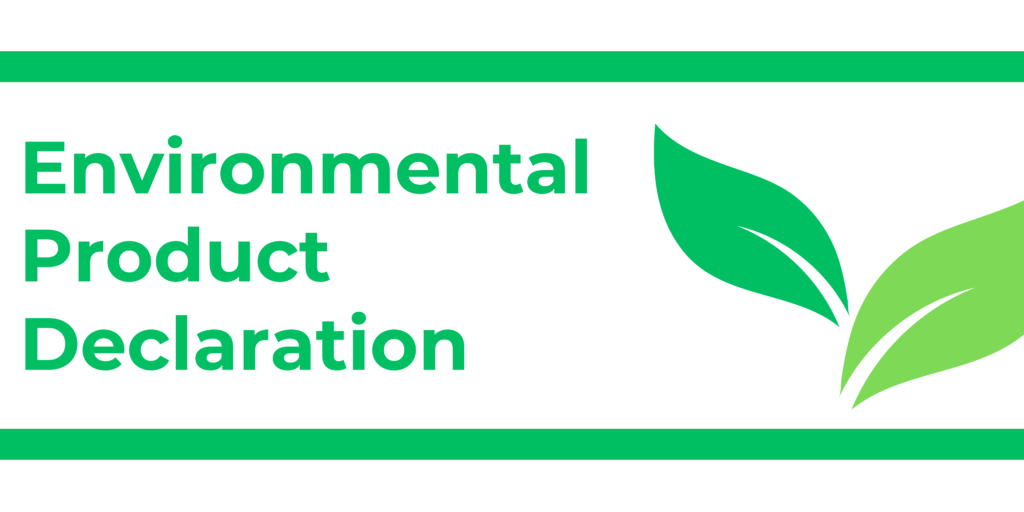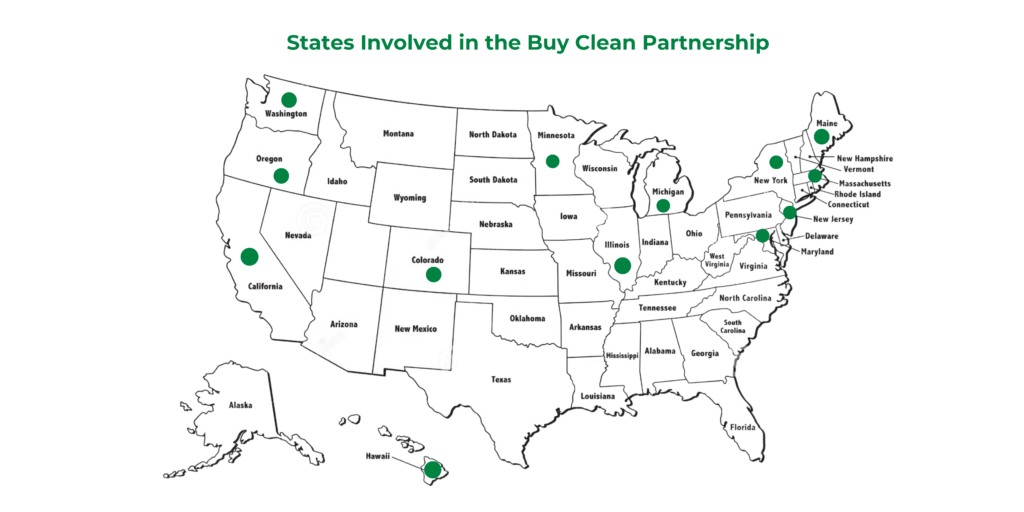The construction industry holds one of the highest industry carbon footprints, so it is important we enable best practices to reduce the carbon footprint we contribute. A Carbon footprint is the total measure of greenhouse gases that are released into the atmosphere. Excess greenhouse gases are responsible for harmful climate patterns, vegetation, and human health. We can reduce our carbon footprint by reducing the resources we use such as fossil fuels, electricity, transportation, materials, and so much more.
To encourage lower carbon footprints in the construction industry, President Biden charged his Administration through his December 2021 Federal Sustainability Plan and Executive Order 14057 to launch a Buy Clean Task Force.
Federal Buy Clean Initiative
The Buy Clean Initiative is a procurement policy that promotes the purchase of construction materials and products with lower embodied greenhouse gas (GHG) emissions. The Buy Clean Task Force will create recommendations on policies and procedures, which includes:
- Identifying construction materials and products with the highest embodied carbon concerns, such as steel, cement/concrete, asphalt, and glass.
- Increasing the transparency of embodied emission through supplier reporting of Environmental Product Declarations (EPDs).
- Launching pilot programs to boost Federal procurement of cleaner construction materials and learn more about their performance.

Federal-State Buy Clean Partnership
In March of 2023, the Biden-Harris Administration launched the Federal-State Buy Clean Partnership with commitments from the following states: California, Colorado, Hawaii, Illinois, Maine, Maryland, Massachusetts, Michigan, New Jersey, New York, Oregon, and Washington. Minnesota later joined the partnership. These states have committed to lowering greenhouse gas emissions using lower-carbon infrastructure materials in state-funded projects. This partnership will help states share best practices related to clean procurement and enhance implementation and adoption of such policies moving forward.

“We all have a role to play in reducing emissions and building a cleaner future. Massachusetts applauds the Biden-Harris Administration for launching the Federal-State Buy Clean Partnership and is proud to be a member, We stand ready to collaborate with other states and our federal partners to move forward on our shared goals of expanding U.S. manufacturing of clean materials, decreasing emissions from the industrial sector, and creating good, clean energy jobs.”
–Massachusetts Governor Maura Healey
Key Elements of Buy Clean Policy
Disclosure
Buy Clean policies require measurement and disclosure of supply chain emissions in the form of EPDs. The possible outcomes of using disclosure requirements include more availability of EPDs, increased quality and consistency of data, and more capacity of measurement and reductions in greenhouse gas emissions.
Standards
This sets a performance-based standard for the level of GHG products can emit. This encourages clean solutions and discourages emissions outsourcing, as well as encouraging innovation, new strategies, rewards companies, and supports the overall message.
Incentives
Policies can use incentives to encourage voluntary participation, support implementation, or reward high performance. This rewards innovators, encourages market-driven solutions, and increases participation.
For a better understanding of the Buy Clean Initiative, watch the video below.

